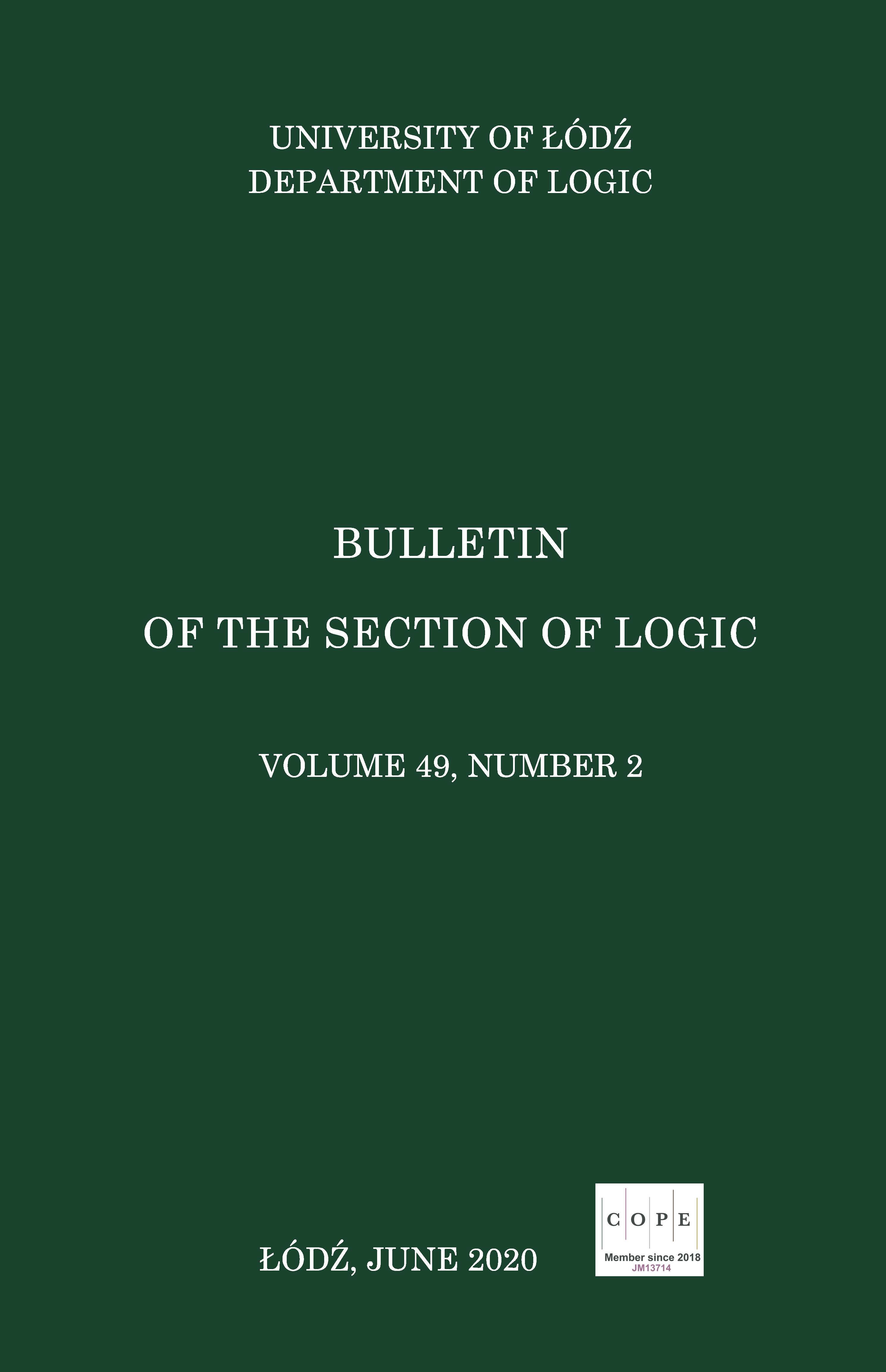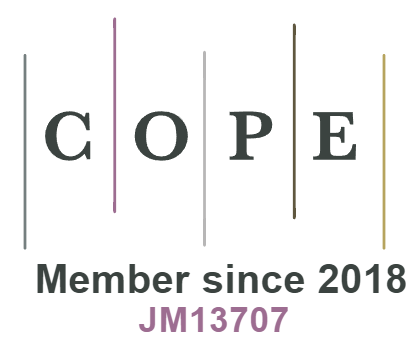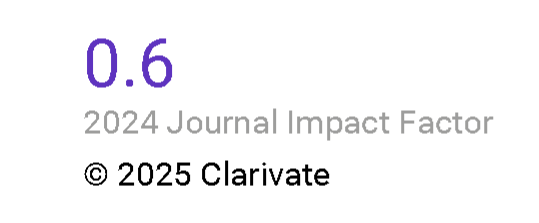Completeness, Categoricity and Imaginary Numbers: The Debate on Husserl
DOI:
https://doi.org/10.18778/0138-0680.2020.07Keywords:
Husserl, completeness, categoricity, relative and absolute definiteness, imaginary numbersAbstract
Husserl's two notions of "definiteness" enabled him to clarify the problem of imaginary numbers. The exact meaning of these notions is a topic of much controversy. A "definite" axiom system has been interpreted as a syntactically complete theory, and also as a categorical one. I discuss whether and how far these readings manage to capture Husserl's goal of elucidating the problem of imaginary numbers, raising objections to both positions. Then, I suggest an interpretation of "absolute definiteness" as semantic completeness and argue that this notion does not suffice to explain Husserl's solution to the problem of imaginary numbers.
References
[1] S. Awodey, E. Reck, Completeness and Categoricity. Part I, History and Philosophy of Logic, vol. 23 (2002), pp. 1–30.
Google Scholar
[2] R. Carnap, Untersuchungen zur allgemeinen Axiomatik, Wissenschaftliche Buchgesellschaft, Darmstadt (2000).
Google Scholar
[3] S. Centrone, Logic and philosophy of mathematics in the early Husserl, Springer, Dordrecht (2010).
Google Scholar
[4] J. J. Da Silva, Husserl's two notions of completeness, Synthese, vol. 125 (2000), pp. 417–438.
Google Scholar
[5] J. J. Da Silva, Husserl and Hilbert on completeness, still, Synthese, vol. 193 (2016), pp. 1925–1947.
Google Scholar
[6] A. Fraenkel, Einleitung in die Megenlehre (3rd edition), Springer, Berlin (1928).
Google Scholar
[7] H. Hankel, Theorie der complexen Zahlensysteme (vol. 1), Leopold Voss, Leipzig (1867).
Google Scholar
[8] M. Hartimo, Towards completeness: Husserl on theories of manifolds 1890–1901, Synthese, vol. 156 (2007), pp. 281–310.
Google Scholar
[9] M. Hartimo, Husserl on completeness, definitely, Synthese, vol. 195 (2018), pp. 1509–1527.
Google Scholar
[10] C. O. Hill, Husserl and Hilbert on completeness, From Dedekind to Gödel, Springer (1995), pp. 143–163.
Google Scholar
[11] W. Hodges, Truth in a structure, Proceedings of the Aristotelian Society, vol. 86 (1986), pp. 135–151.
Google Scholar
`2] [12] W. Hodges, Model Theory, Cambridge University Press, Cambridge (1993).
Google Scholar
[13] E. Husserl, Formal and Trascendental Logic, Springer+Bussiness Media, Dordrecht (1969).
Google Scholar
[14] E. Husserl, Philosophy of Arithmetic, Kluwer Academic Publishers, Dordrecht (2003).
Google Scholar
[15] A. Lindenbaum and A. Tarski, On the limitations of the means of expression of deductive theories, Logic, semantics, metamathematics, Hackett, Indianapolis (1983), pp. 384–392.
Google Scholar
[16] L. Löwenheim, On possibilities in the calculus of relatives, From Frege to Gödel, Harvard University Press, Harvard (1967), pp. 228–251.
Google Scholar
[17] U. Majer, Husserl and Hilbert on completeness, Synthese, vol. 110 (1997), pp. 37–56.
Google Scholar
[18] P. Mancosu, The Adventure of Reason, Oxford University Press, Oxford (2010).
Google Scholar
[19] M. Manzano, Extensions of First Order Logic, Cambridge University Press, Cambridge (1996).
Google Scholar
[20] M. Manzano, Model Theory, Oxford University Press, Oxford (1999).
Google Scholar
[21] A. Tarski, On the concept of logical consequence, Logic, semantics, metamathematics, Hackett, Indianapolis (1983), pp. 409–420.
Google Scholar
[22] A. Tarski, On the completeness and categoricity of deductive systems, The Adventure of Reason, Oxford University Press, Oxford (2010), pp. 485–492.
Google Scholar
[23] N. Tennant, Deductive versus expressive power: A pre-Gödelian predicament, The Journal of Philosophy, vol. 97 (2000), pp. 257–277.
Google Scholar
Downloads
Published
How to Cite
Issue
Section
License

This work is licensed under a Creative Commons Attribution-NonCommercial-NoDerivatives 4.0 International License.















